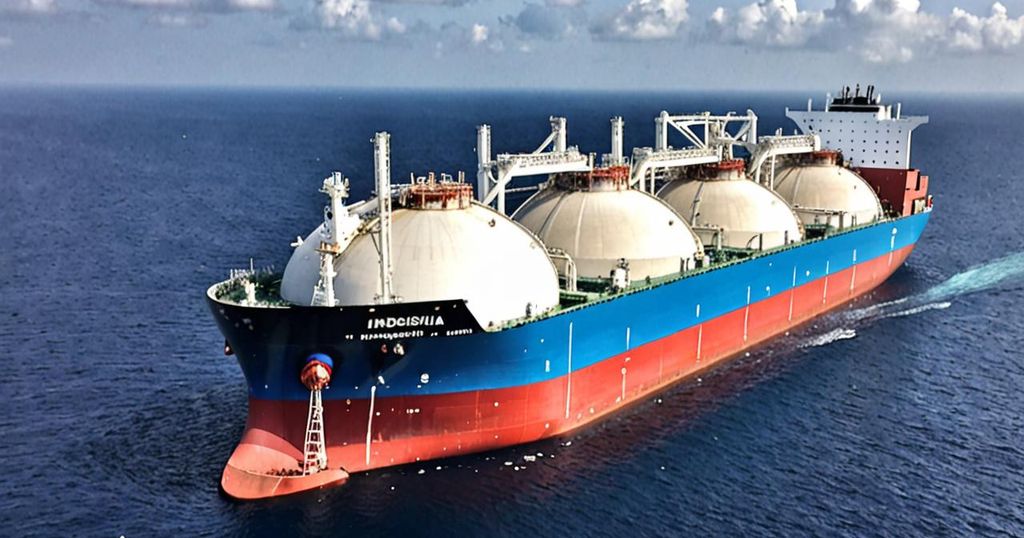It has been projected that Indonesia, a significant exporter of liquefied natural gas (LNG) globally, may soon shift to being heavily reliant on imported LNG due to a widening gap between supply and demand within the country. Salis L Aprilian, senior advisor to the Indonesian Gas Society (IGS), emphasized the potential for Indonesia to transition from a net exporter to a net importer of LNG in the near future. This transformation is linked to the increasing demand for natural gas within the country, driven by its perceived lower emissions compared to other fossil fuels, as well as the limited domestic supply to meet this growing demand.
Despite Indonesia’s position as a major LNG exporter, it has encountered challenges in maintaining sufficient output from its local gas fields, leading to concerns about a potential shortfall in local gas supply. Consequently, the country may need to consider importing LNG to meet its domestic needs, as outlined in a study conducted by IGS and research firm Rystad Energy.
The implications of this transition are significant, given Indonesia’s substantial natural gas reserves and historic role as a prominent LNG exporter. In 2023, the country exported 16.22 million tonnes of LNG, accounting for 4.78 percent of the world’s total LNG exports, according to data from S&P Global. However, with the projected increase in reliance on imported LNG, Indonesia may undergo a fundamental shift in its role within the global LNG market.
The potential transition from a net exporter to a net importer of LNG raises critical questions about Indonesia’s energy security and its ability to meet the growing demand for natural gas within the country. Furthermore, it underscores the complex interplay between energy transitions, global market dynamics, and domestic policy choices that will shape Indonesia’s energy landscape in the coming years.
As Indonesia grapples with the prospect of increasing LNG imports, it becomes imperative for policymakers, industry stakeholders, and the broader community to engage in informed discussions about the future of the country’s energy sector. Addressing issues related to energy supply, environmental sustainability, and economic development will require a multifaceted approach that considers the diverse interests and priorities of various stakeholders.
The evolving dynamics of Indonesia’s LNG trade not only have implications for the country’s energy sector but also for the global LNG market, given Indonesia’s historical role as a major exporter. As such, the potential shift towards greater import dependency carries broader geopolitical and economic implications that merit careful consideration and analysis.
In navigating these complex challenges, Indonesia has the opportunity to explore innovative solutions that enhance energy security, promote sustainable development, and reinforce its position as a key player in the global energy landscape. Collaboration between public and private sector entities, strategic investments in infrastructure, and the adoption of forward-looking policies will be essential in shaping a resilient and dynamic energy sector that can meet the evolving needs of Indonesia and contribute to global energy transition efforts.

Leave a Reply